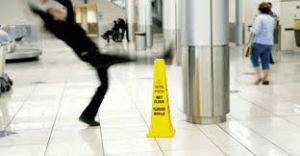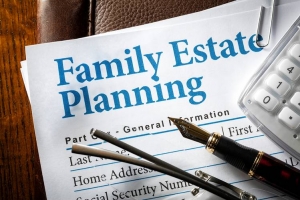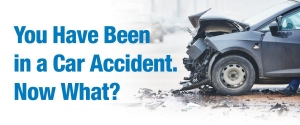Bill Connor

Giving another person power of attorney in Orangeburg South Carolina is sometimes necessary, but should only be done after learning about the different types of power of attorney and the associated legal ramifications. In discussing this subject with clients (or those I am advising), I usually explain the importance of executing a power of attorney in certain circumstances. I also provide the options for powers of attorney, and consequences. This usually comes as I am discussing estate planning, and considerations for both usually run together. Power of attorney is given to another to give that person the ability to make critical decisions and take critical actions on one's behalf, usually due to the inability of the person giving power of attorney. The law in South Carolina now allows for providing a power of attorney which (POA) will continue beyond the mental incapacity of the person giving POA. This is called a "durable" POA. One is not required to give a durable POA and may decide they don't want the POA to go beyond incapacity. The person giving POA can also decide what powers to give. A "general" POA gives all powers for signing financial (business, real estate, and banking) related documents. However, the POA can be tailored to offer only specific powers. For example, a POA that allows the person receiving the power of attorney to sign certain specific real estate documents. The most wide-ranging POA would be a general durable Power of Attorney, which gives all powers in survives incapacity to the point of death. A limited non-durable POA would be restrictive. The Power of Attorney Document must be signed in front of two witnesses, notarized, and registered in the County Register of Deeds before it will be accepted by businesses as authoritative. That's why it is important to execute a POA with an attorney. The Bill Connor Law Firm wants you to know, It's important to remember that in giving another a general and durable power of attorney, that person has the power to take all financial related actions as though they were the person who provided power of attorney. Yes, that means the person must be trusted, as they can go to a bank and clear out accounts among other things. Even with a limited POA for certain business transactions, the person can do anything within the scope of the POA and will not be questioned by the respective business. This can be necessary when someone is in a position they cannot conduct business, for example when I was mobilized for over 15 months for a deployment to Afghanistan I had to allow my wife general durable POA. It can also be for when one is in the hospital in a limited state of ability. Of course, POAs can be revoked, but that requires the same requirements of two witnesses and notary and registration with the Register of Deeds. A general durable or more limited POA allows for handling financial matters. Another type of power of attorney allows for making health care decisions for another when incapacity prevents the person giving POA from giving his wishes. This is similar to a living will, as it deals with situations in which the person giving POA is being kept alive by either life-sustaining support or forced hydration/nutrition. The Health Care POA also allows for the decision to donate organs after death. This POA giving three options to the person providing POA: 1. Discretion to the POA holder. 2. Directive not to continue life-sustaining support or forced hydration/nutrition. 3. Directed to continue all life sustainment or forced hydration/nutrition. Most giving POA will just give the decision-making to the person receiving POA. In all cases of giving Power of Attorney in Orangeburg SC, whether general durable, limited, or health care POA, it is critical to have trust in the person receiving Power of Attorney. It is also critical to discuss the POA with the person who will be acting on one's behalf. They will need guidance to act appropriately. This is something to prayerfully consider, and ensure it is done right. If you are in need a Lawyer in Orangeburg SC Call The Bill Connor Law Firm at 803-937-5571
The chief considerations that determine the outcome of slip and fall claims in Orangeburg SC, revolve around three particular questions. First, who is the people/business that is liable for the accident? Second, Was the responsible party negligent or otherwise contribute to the incident? And finally, did the injured person cause or add to their accident in any way. What do we mean by negligence? Things such as inadequate lighting and limited visibility are also factors that contribute to the determination of negligence in a slip and fall case. Plaintiffs are overwhelmed with the responsibility of proving that the liable party could have taken some other action to prevent the accident but declined to do so. They must also show that even if there was a legitimate reason for the obstruction to be present, that the justification was no longer valid at the time that the injury took place also that no preventive measures were made to prevent the disaster. While the difficulty of proof lies with the plaintiff, the facts of the case will present the affirmations or declarations necessary to determine the level of negligence committed. How to provide proof that someone is liable? Where you at fault in an accident in Orangeburg SC? Some states recognize contributory fault laws and will not award a settlement to a plaintiff if there is any degree, no matter how small, of partial blame on the part of the injured person. These states enforce similar negligent laws and will award compensations in cases where there is partial negligence and will reduce the settlement in balance to the percentage of liability. Determining partial liability on the part of the injured person is determined by the engagement, access, and warnings provided to the plaintiff. For example, if a person is distracted by talking or texting on the phone, they may be found personally liable. If the accident happened in a restricted area in which the plaintiff was not given access to, or if they disregarded warning signs posted in the area, those issues may also present a case of partial liability. What are some typical injuries associated in slip and fall incidents? Slip and fall accidents can result in wounds that range from just minor bumps and bruises to in some cases permanent disabilities. While many injuries can be suffered as a result of slip and fall accidents, there are a few injuries that are more common involving the head, neck, back, and pelvic areas. What are the categories of compensation? General compensatory damages are most likely to be awarded in slip and fall cases. These types of awards serve to repay an injured party for damages that are considered non-monetary. These damages include: These compensatory damages include: Medical bills In conclusion, there are many factors to consider when determining slip and fall settlements. Negligence and liability are two of the significant components of discovery, but the plaintiff must be free from blame for the injuries. To see if you qualify for Slip and Fall Compensation, call the Bill Connor Law Firmin Orangeburg SC Today!
Slip and Fall accidents can happen anytime, anyplace, and anywhere, even at your job or in a place of business. The factors that cause these accidents are usually when a floor is slippery and wet or if there is an obstruction in the walkway that causes you to trip. No matter what the situation, if a person is injured due to a slip and fall the employer or business may be held liable for those injuries. There are several factors to consider when determining whether or not a person is eligible for a slip and fall lawsuit such as negligence and liability. Also, there are several common injuries associated with slip and fall accidents; the compensation is awarded for different kinds of damage, for example, attorney fees, medical bills, as well as pain and suffering.
Negligence is when the safety of others is disregarded by failure to act as any other reasonable person would. For instance, if a pothole or uneven surface created a dangerous situation. The primary attribute in this example is whether or not a reasonable person knew about the dangerous or potentially hazardous conditions and if the liable party had the opportunity to improve the conditions prior to the accident. The task then is to prove whether or not the responsible property owner specifically caused the dangerous situation themselves and if it was clearly understood that a person could suffer an injury due to the situation.
To prove that someone is liable, they must have a legal responsibility for the property. A property owner or business owner would have to usually assume liability for an accident that occurs in their place of business except in the case that they have insurance that would relieve them of that liability. In the case, the owner or employer insurance company would assume, and therefore the plaintiff would have to file a suit against them instead of the insured.
While there may have been dangerous conditions present at the time of the slip and fall, the plaintiff must be free from guilt to place all of the liability on the defending party. If the injured party added to the accident in any way, they must accept their part of the liability, which usually repeals the assumption of full responsibility by the property or business owner.
Pain and Suffering
Mental Anxiety
Loss of Companionship
There are special compensatory damages that are awarded in cases where monetary expenses are acquired on behalf of the injured person as a direct result of the injury. The purpose is to make the plaintiff whole again and restore their financial situation to where it was before the accident.
Lawyer fees
The cost of future medical services
Household bills
ADMINISTERING AN ESTATE AS PERSONAL REPRESENTATIVE (WITH OR WITHOUT AN ESTATE LAWYER) Losing a loved one can be one of the most challenging events in life. In addition to the emotional pain of the loss, the person closest to the dearly departed is usually the one who must administer the Estate. With all the grief involved with the loss, the task of inventorying, appraising, safekeeping, and finally distributing the Estate can bring a great deal of trepidation. Personal Representatives, or those charged with Estate administration, are accountable for all the legal requirements involved, and to the beneficiaries of the Estate. Though many in Orangeburg SC will hire an Estate lawyer to handle the legal technicalities, it is still important to know the basic requirements of administration in order to ensure things are done correctly. Within a few days after the loved one has passed, the person designated by Last Will and Testament as Personal Representative should probate the Will and request appointment as Personal Representative (PR). If there is no Will, the person closest to the dearly departed should file in intestacy and request appointment as PR. In either case, the County Probate Judge) of the residence of the dearly departed) must order the PR appointment. Other interested parties can contest that appointment, though if the PR is designated in the Will it is highly likely the Judge will appoint. In intestacy, the surviving spouse has priority, followed by children (children would have equal rights, and each may be appointed). After the PR appointment, the next step is for the PR to inform heirs and devisees of the Estate (heirs are those who would take in intestacy, and devisees are those designated as beneficiaries by the Will) and to begin the Inventory and Appraisement of the Estate (which must be completed within 90 days of appointment as PR) and notice must go out to creditors. Creditors have eight months to make a claim on the Estate, or they lose the right to come back. This means the Estate must remain open for eight months from the notice to give time for the creditor period to pass. Once the creditor period has passed, the Estate Lawyer (or PR without a lawyer) will begin to close the Estate. This is the part that can become a bit complex and must be done correctly to allow for Probate to close the Estate without liability against the PR. There must be a Deed of Distribution executed and registered with the Registry of Deeds for any Real Property of the estate. This allows for a chain of title from the dearly departed to the devisee(s) of the Real Property. The PR must account to the penny for all money and other assets that came in the Estate, and were then redistributed by the PR. The PR must also account for expenses he paid for the Estate, and up to a 5% PR fee (5% of the gross value of the Estate) that the PR can claim for himself. He must sign a proof of delivery that he has mailed the Accounting, Application for closing, Amended Inventory and Appraisement, and a Notice of Right to Hearing to all heirs and devisees of the Estate. That gives them notice they have 30 days to contest the accounting or any other closing document. At this point, the PR or the PR lawyer takes the Estate closing packet: Application for Settlement, Deed of distribution (if applicable), Accounting, Proof of Delivery, Notice of Right to Hearing, Amended Inventory and Appraisement (normally, there will be modifications to the initial). After 30 days, assuming no request for hearing to contest the closing, the Probate Judge will sign an order closing the estate. If assets have not already been distributed, they are distributed with a Receipt and Release With Waiver. Thus closing out the Estate. Estate Lawyers in South Carolina will be doing all the above, and they can be paid as an expense of the Estate from Estate funds. In some cases, houses and other real property may be sold during the administration, causing delays. However, it is important that the PR supervise the process and understand they are personally liable and accountable for the Estate. With the basic information, PRs should be able to understand the process and ensure their loved one's wishes are honored.
If you need an Estate Lawyer in Orangeburg South Carolina call The Bill Connor Law Firm Today!
Incidents involving personal injury usually come without warning, and what happens right after can be a nightmare to those who are hurt. In some cases, the injury is severe enough to cause unconsciousness. In that event, the person hurt might wake up in medical treatment away from the scene of the accident. Most commonly, the person hurt is conscious but in some level of shock after the crash. Decisions made in the immediate aftermath can have later wide-ranging consequences when it comes to redressing for the damage caused by the incident. That is the purpose of this article: Knowing what to do and thinking about what to do after personal injury in Bamberg Sc. The first priority after an accident must be safety and immediate care of those affected. The critical thing to remember during this time is, In Bamber South Carolina, any admission of fault can and will be part of the record in the event of a legal conflict. Typically, "hearsay" testimony is not allowed in court, but an exception is for the admission of a party. Anyone who has heard an admission can testify about that admission and it can be the evidence that determines the case. With any accident involving personal injury, A person might feel sorry for what happened and even think they are to blame. However, in the emotion-filled moments after accidents parties are generally not thinking clearly or know all the facts. On an objective reflection with the facts, a person may discover they are not at all at fault or less at fault than the other people involved. If the other party admits guilt, it is important to note. The other priority after an accident in Bamberg South Carolina is ensuring an accident report memorializes the accident. Wait for law enforcement to arrive and record the accident, and take the time to speak to the officer if at all possible. Note the witnesses to the accident and attempt to learn their identity if possible. If EMS has evacuated before the arrival of law enforcement, ensure you speak to the officer at the earliest opportunity. That includes in the Emergency Room if necessary. Note potential evidence beyond witnesses that may be used to help prove what happened. For example, almost all modern vehicles will have a so-called "black box" data recorder which provides a great deal of evidence of what happened: Speed of the cars at impact, the angle of impact, etc. In some incidents, the accident may have taken place under the observation of a surveillance camera. This could be the case if it was inside or near a business. Use discretion in what is said, ensure the accident is correctly memorialized with your input, note and remember witnesses, know about other evidence like black boxes and videos. Be sure to secure a thorough medical exam in the immediate aftermath to note all injuries immediately after the incident (to prove the connection to the accident). All of these things should be considered before an incident to guarantee the proper actions after an accident. Bill Connor is a Personal Injury Attorney serving Bamberg and all of South Carolina, if you have been involved in an accident contact the Bill Connor Law Firm Today.
First, it's important to understand that when a service member is off-duty and off post and without government vehicle(s) or equipment, they have the same rights and procedures as other civilians. If injured by the negligence (or intention) of another, the service member can bring suit in a civilian court. For South Carolina and many states, the jurisdiction will be in either the county of the accident/incident or the county of residence of the defendant. Though the service member can bring suit himself, he should consider retaining a lawyer in that jurisdiction to bring suit. The one nuance of being in the military while bringing suit is protection from hearings and a stay of the case if/when the service member is deployed (or in the case of the RC being activated on military orders, like for a hurricane). Otherwise, the process is the same as with civilians. A unique issue with military members is when they are either in an active drill status or on orders with the RC when they are injured. First, on drill status, the service member can be covered by military health coverage for injuries including personal injury. This is the same when on orders for Annual Training (AT) or a mobilization. The military may require a Line of Duty (LOD) investigation to determine if the injury was within duty, including travel in a personal vehicle to or from duty. The active duty service member always has access to military health coverage. As with other insurance carriers and Medicare/Medicaid, the government may assert a lien if the case is resolved and recoup a small amount of money for health coverage. If the personal injury involves a government entity, particularly in the event of an injury on post, a service member family member still may have rights to sue. However, it is important to note that bringing suit against a government entity is more challenging based on protections. Additionally, the service member does typically not have the right to sue under duty situations involving government entities. An example of the situation is when a family member is injured in a slip and fall, in an on-post facility like a post exchange. That case would be brought in Federal Court being on a military reservation. There are other unique situations for the service member on active duty being injured by another party. If the injury occurs off-post and caused by a civilian, the normal right to sue applies, and jurisdiction would be sought as when off-duty. The key difference would come with the military requirement of investigation and reporting procedures. Additionally, if the accident occurs while on duty in military property (vehicle, etc.), the civilian involved would have recourse against the military under the Federal Tort Claims Act. That is in the event the person claimed negligence on the part of the service member. Situations can vary, so it is always a good idea to seek the counsel of a local attorney. Though service member has access to JAG attorneys for legal help, it's important to know that the JAGs may or may not be licensed in the state of the accident. They are only required to be licensed in "a" state but can give opinions about states of the base they are stationed and other states. Since state law varies by state, it is safer to seek the advice of a lawyer licensed in that state. Hopefully, this gives service members a bit of information to help. I want to thank you for your sacrifices and service on behalf of our great nation.
Having served as an Army officer for almost 3 decades (about half on active duty and half reserve component), and having grown up in a military family, I care deeply about service members. Like everyone, those in the military face the possibility of being injured by another party in the course of life. Unlike civilians, however, those in the military can fall into unique legal positions based on when and how the personal injury occurred. The legal position could be one of effecting the ability to bring suit, but can also affect the way the injury is resolved. This article is for service members, and particularly those serving in the Reserve Component (RC) of National Guard and Reserves.
If you are in need of Personal Injury Attorney call The Bill Connor law Firm TODAY
Accidents involving personal injury usually come without warning, and what happens right after can be a whirlwind to those who are hurt. In some cases, the injury is bad enough to cause unconsciousness. In that event, the person hurt might wake up in medical treatment away from the scene of the accident. Usually, the person hurt is conscious but in some level of shock after the accident. Decisions made in the immediate aftermath can have later wide-ranging consequences when it comes to redressing for the damage caused by the accident. That is the purpose of this article: Knowing what to do, and thinking about what to do after personal injury. The first priority after an accident must be safety and immediate care of those involved. The important thing to remember during this time is, In South Carolina, any admission of fault can and will be part of the record in the event of a legal dispute. Normally, "hearsay" testimony is not allowed in court but an exception is for the admission of a party. Anyone who has heard an admission can testify about that admission and it can be the evidence that determines the case. With any accident involving personal injury, A person might feel sorry for what happened and even think they are at fault. However, in the emotion-filled moments after an accident parties are not normally thinking clearly or possess all the facts. On an objective reflection with the facts a party may discover they are not at all at fault, or less at fault than the other party. If the other party admits fault, it is important to note. The other priority after an accident in South Carolina is ensuring an accident report memorializes the incident. Wait for law enforcement to arrive and record the accident, and take the time to speak to the officer if that is possible. Note the witnesses to the accident and attempt to learn their identity if possible. If EMS has evacuated before the arrival of law enforcement, ensure you speak to the officer at the first opportunity. That includes in the Emergency Room if possible. Note potential evidence beyond witnesses that may be used to help prove what happened. For example, almost all modern vehicles will have a so-called "black box" data recorder which provides a great deal of evidence of what happened: Speed of the vehicles at impact, angle of impact, etc. In some cases, the accident may have taken place under the observation of a video camera. This can be the case if it was inside or near a business. Using discretion in what is said, ensuring accident is properly memorialized with your input, noting and remembering witnesses, knowing about other evidence like black boxes and videos. Ensuring a thorough medical exam in the immediate aftermath to note all injuries immediately after the accident (to prove the connection to the accident). All of these things should be reflected before an accident to ensure the right actions after an accident. Bill Connor is a Personal Injury Attorney in Orangeburg South Carolina. If you have been involved in an accident contact the Bill Connor Law Firm Today.
You are stopped in traffic, and suddenly your world is turned upside when a vehicle hits you from behind. You saw the car coming for a split second in your rear-view mirror just before impact and adrenaline is racing through your body as the impact take place and everything is jolted and damaged. After the accident, you still have the adrenaline racing through your body and your mind exhibits confusion as to what happened. This is a critical time for a number of reasons, and something that must have been thought through with a plan of action before it happens for real. In terms of legal protection and security, the actions taken shortly after an accident are critical and can have lifetime effects. The first thing to remember after an accident, whether a rear-end collision or another type of high impact collision, is that the adrenaline rush that takes place in the moments before, during and after the accident can hide injuries and cause some confusion. I have been rear-ended, and have also been in a combat situation in which adrenaline flooded my system. It is a normal human reaction when life is threatened and the "fight or flight" response kicks in. Crucially, the adrenaline can hide the pain of serious injury for hours or days. That's why it's important to always be cautious in moving after an accident and always getting medical checks after an accident. You may not feel the pain of serious injury, but it can exist and the pain will set in sometime later. In terms of legal protection (legal protection in both defending a lawsuit and the ability to seek legal redress for damages associated with an accident), getting medical checks immediately after the accident is critical and can make or break a future lawsuit. Attempting to "tough it out" and wait possibly days before receiving medical checks can kill the ability to bring a suit. The longer the gap between the accident and medical care, the harder it can be to prove the injury is associated with the accident. A day or more of a gap leaves the potential for the claim of an intermediate accident as the cause of the injuries. Additionally, the type of injuries found immediately after the accident can help prove the liability, particularly in the later attempts to reconstruct the accident. The next thing to consider is quickly noting and obtaining evidence to help prove the liability is with the other driver. Even while quickly seeking medical attention, it's important to try to note any potential witnesses. It's also important to note and seek to obtain potential video evidence (for example, school buses normally have cameras facing the back of the bus and can sometimes allow a camera recording of an accident behind the bus. Officers now wear body cams, and this is important to note for evidence. Lastly, statements which can be construed as an admission of liability by the other driver are an exception to the hearsay rule and can be testified by anyone who hears the driver make the admission. Lastly, it's important not to make any admissions at the scene of the accident or any statements which can be construed as an admission. Those types of statements can be testified about by others who heard the statement as party admissions are an exception to hearsay rules. The problem can be that a party is confused from the adrenaline and doesn't realize he is not at fault and makes a statement construed as an admission. That can be enough evidence for the other side to win a suit, even when actually liable. It's important to speak with the law enforcement officer drafting the accident report, but understand that report cannot come in as evidence unless the officer is a certified accident reconstructionist and testifying as an expert. That would be extremely rare. Unless the officer is a witness to the accident, he would not be able to testify at trial to anything beyond what he actually saw and without opinion. It is still important to speak to the officer and provide detail, as the report can be used by insurance companies to determine settlement. The key is to think about what must be done after an accident before an accident takes place. Hopefully, it will never happen, but if it does you will already have much information most do not. When the initial medical treatment is complete, I would recommend looking for an attorney you trust to get on top of the case. He will be quite happy if you have followed my above advice, then it's time to follow his advice. Sola fide,
Bill
CALL NOW! 803-937-5571
















